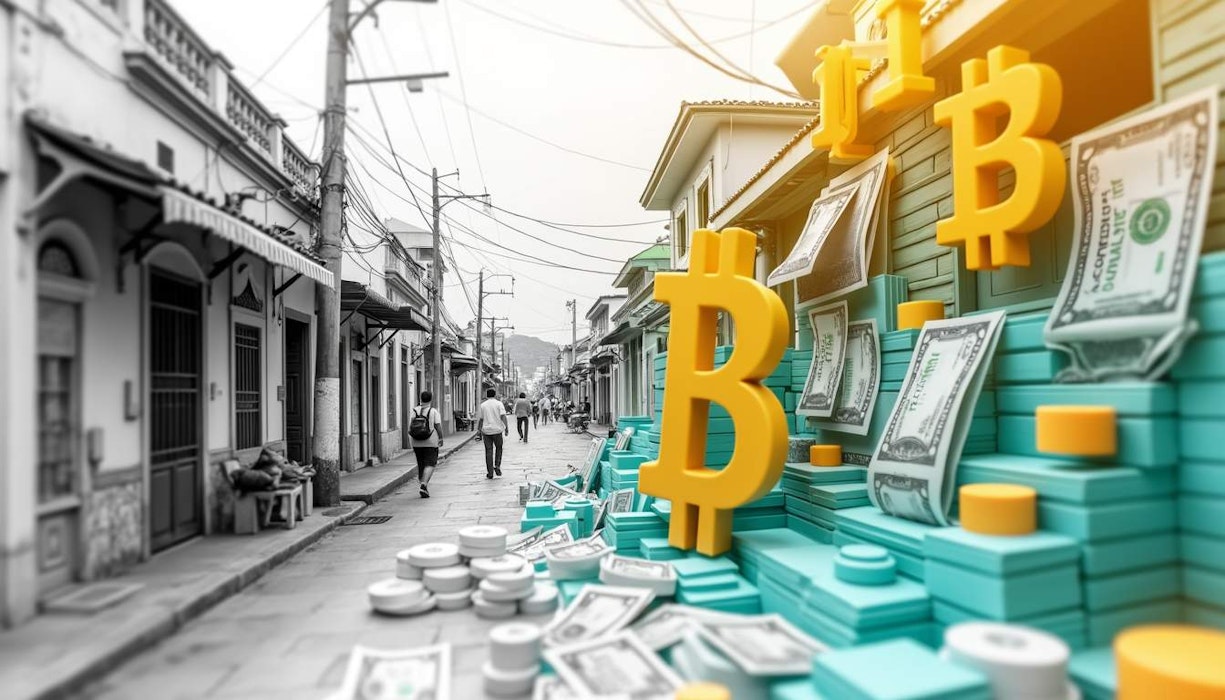El Salvador's decision to embrace Bitcoin as legal tender has sent ripples across the globe. The benefits of this move are evident, especially with the financial windfall the country has enjoyed from its Bitcoin investments. But what about the local small businesses and the dynamics of cross-border payments in Latin America? This post dives into the highs and lows of El Salvador's Bitcoin experiment, examining its repercussions for the region's economy and the lessons it may impart for other nations.
The Bold Move to Adopt Bitcoin
On September 7, 2021, El Salvador made headlines by becoming the first nation to adopt Bitcoin as legal tender. President Nayib Bukele's initiative aimed to reshape the economy and enhance financial inclusion. To facilitate Bitcoin transactions, the government launched the "Chivo Wallet", allowing fee-free transactions, conversions to and from US dollars, and withdrawal without charges.
The reception to this move has been mixed. While some view it as a groundbreaking change, others raise eyebrows over the volatility and risks tied to cryptocurrency.
Financial Gains and Market Position
El Salvador's Bitcoin investments have proven to be lucrative. After Bitcoin crossed the $100,000 mark on December 5, President Bukele revealed the country's Bitcoin portfolio, which had nearly $270 million invested. The portfolio hasn't sold any Bitcoin, and unrealized gains have now surpassed $333 million, seemingly validating the nation's approach.
Currently, El Salvador owns 6,180 BTC, with an average purchase price of $44,739.88. At current prices, that's about 122% gain. The nation has also benefitted from increased tourism and global attention since its Bitcoin adoption.
Cross-Border Payments and Small Business Impact
A key objective behind adopting Bitcoin was to streamline international remittances, which make up over 20% of El Salvador's GDP. The hope was that Bitcoin would cut transaction fees and make cross-border money transfers more efficient.
However, the initial impact on small businesses hasn't been as transformative as expected. While the infrastructure is present, Bitcoin usage for cross-border payments remains limited among these businesses. Most people prefer to convert Bitcoin to dollars instantly, reflecting a lack of faith in the cryptocurrency's stability.
Bitcoin Beach in El Zonte showed promise in integrating Bitcoin into the area’s economy, but that success hasn't translated into widespread national adoption. Most small businesses still rely on traditional payment methods or opt to convert Bitcoin to dollars, likely due to complexities or trust issues.
IMF's Take on Bitcoin
Despite some reported advantages, the International Monetary Fund (IMF) has consistently urged El Salvador to temper its Bitcoin initiatives. The IMF recommended on January 25, 2022, that the country cease recognizing Bitcoin as legal tender, citing financial stability concerns, but acknowledged its potential for financial inclusion.
On October 3, 2024, the IMF reiterated its concerns, with communications director Julie Kozack suggesting the country narrow the Bitcoin Law's scope and limit public sector exposure to Bitcoin. The IMF's stance underscores the potential macroeconomic risks tied to widespread Bitcoin adoption, especially if it were to become legal tender.
The Bigger Picture for Latin America
El Salvador's Bitcoin strategy has implications extending to the rest of Latin America. The region is heavily reliant on remittances, and more efficient cross-border payments could be revolutionary. But the challenges El Salvador has faced highlight the intricacies of national cryptocurrency adoption.
Countries like Mexico and Venezuela are closely monitoring El Salvador's experiment. In hyperinflation-prone economies, Bitcoin often serves as a more stable store of value compared to local currency. Its decentralized nature and limited supply can provide a hedge against the reckless financial policies that often lead to hyperinflation.
However, the risks tied to Bitcoin's price volatility, regulatory hurdles, and the necessity for robust digital infrastructure can't be overlooked. Countries eyeing similar strategies must carefully assess the potential benefits against these challenges.
Summary
El Salvador's Bitcoin experiment has resulted in financial gains and garnered global interest. Yet, the broader impact on small businesses and cross-border payments in Latin America has been limited. The IMF's warnings serve as a reminder of the potential risks, and the challenges faced by El Salvador highlight the complexities of national cryptocurrency adoption.
As other nations in Latin America and beyond weigh similar strategies, they need to consider their unique economic situations, regulatory landscapes, and infrastructure capabilities. The lessons from El Salvador's Bitcoin journey provide essential insights into the benefits and risks of integrating cryptocurrency into national economies.
